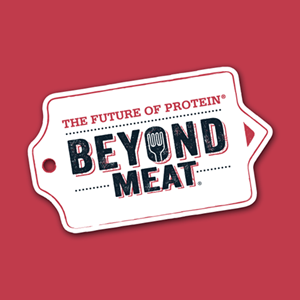2022 Recap: Alt-Proteins See Innovation Surge, Beyond Meat & Impossible Drama
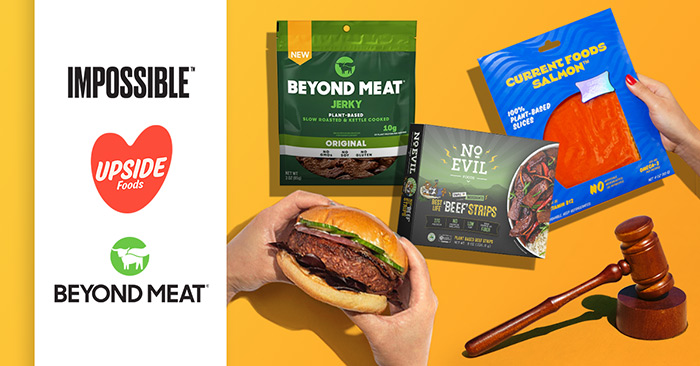
Regardless of what it’s called – vegan, plant-based, alternative, animal-free, fake meat – 2022 saw plenty of money and movement in the category of non-animal-derived protein.
Though investment dollars continue to crop up, scrutiny over the long term viability of these businesses has too. Category leaders increasingly faced questions about their missions, particularly when it comes to accessibility and ability to reach price parity with animal meat. Additionally, legal battles were waged within the category. Allegations spanned food tech espionage, intellectual property-violating innovations, disputed manufacturing agreements to a simple accusation – “Something is really wrong at Beyond Meat.”
Check out the timeline below to see this year’s highlights from the emerging and tumultuous industry.
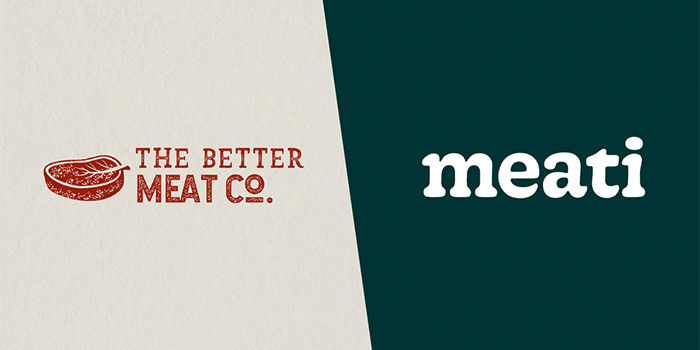
At the start of the year, The Better Meat Company and Meati became embroiled in a legal dispute alleging the CEO of the former brand stole fermentation trade secrets from its fellow mycelium-based alt-meat maker, Meati. While the two readied to square off in court by late July, Meati was also celebrating its retail launch and $150 million fund raise. Following the trial California district judge ordered the case be dismissed in October.
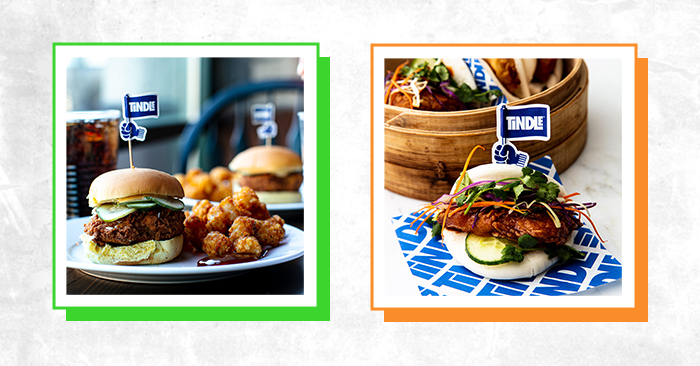
Singapore-based Next-Gen announced the close of a $100 million funding round in February to support the launch of its plant-based chicken brand, Tindle, in the United States. The product aims to differentiate itself by its ability to morph into multiple formats with co-founder and CEO Andre Menezes calling the product an “edible Play-Doh” made from nine non-GMO ingredients. The products launched first in foodservice and, at the time of publication, planned to roll out to retail in 2023.
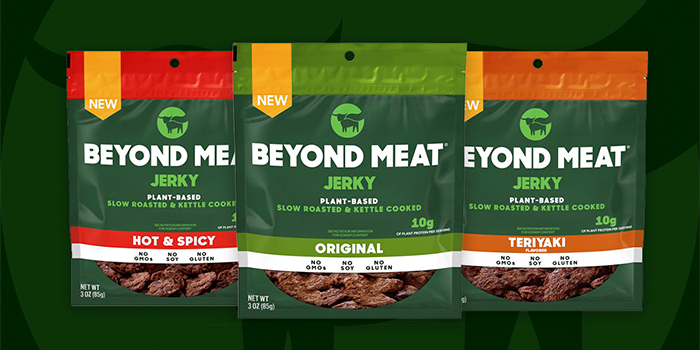
Nearly a year after the two companies announced a joint venture (JV) agreement, PepsiCo and Beyond Meat brought their plant-based jerky to Walmart and Ralphs stores in March. Beyond Jerky is the first product of the PLANet Partnership which will see Beyond Meat sell products into the JV, and then split the profit or loss with PepsiCo. The launch came only a month after Kraft Heinz announced its own JV with plant-based food tech company NotCo. Beyond also released its long awaited steak product this year.
Beyond Meat made headlines once again in June when former co-manufacturing partner Don Lee Farms filed a lawsuit against the company claiming “Something is really wrong at Beyond Meat.” The complaint alleged that the company was misleading consumers by touting inaccurate nutrition labels and criticized CEO Ethan Brown for creating an internal culture of blame within the company. The issues raised about its nutritional information quickly spurred a slew of class action lawsuits. After numerous attempts by Beyond Meat to have the case dismissed, the two reached a settlement in October and the case was tossed. Many of the class actions are still active.

Plant-based seafood saw a wave of support this summer with alt-shrimp maker ISH launching its first product, dubbed ShrimpISH. The product is made from regeneratively grown ingredients including green coconut, soy protein and konjac.
Alongside the ISH news, plant-based tuna and salmon brand Current Foods announced the close of an $18 million funding round. The capital was said to be put toward the brand’s retail launch as well as the development of new innovations. In October, Current Foods brought its alt-salmon product to numerous New York City retailers as well as Berkeley Bowl and Raley’s in Northern California.
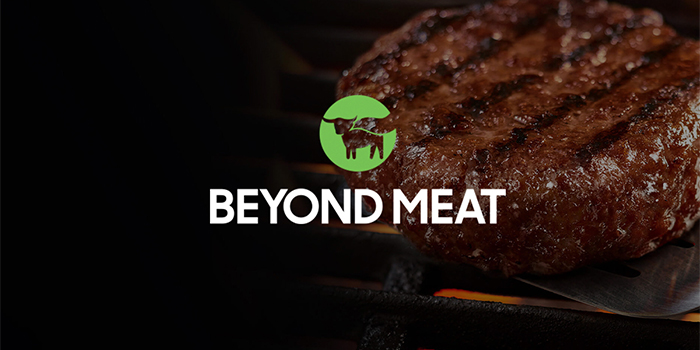
August brought another setback for publicly-traded Beyond Meat, which reported a 1.6% revenue decline in Q2 during an earnings call. As a result, the company announced it cut back manufacturing costs and laid off approximately 4% of its workforce (~40 employees). At the time, Beyond said the move was intended to save the company $8 million annually. Brown attributed the decline to the economic climate, claiming that inflation was leading consumers to cut back on premium products like plant-based meat. On the company’s third quarter earnings call, Brown then said he was taking “aggressive measures” to turn the company’s declining sales around.
Beyond Meat also had a variety of executive changes this year, with its COO suspended before ultimately being dismissed, and its chief supply chain officer resigning.

Impossible Foods also underwent a round of layoffs this year, announcing in October that it would let go of around 6% of its 800-person workforce due to a structural reorganization. The restructuring came six months after Peter McGuinness, former Chobani president and COO, took on the role of Impossible’s CEO. With the move, Pat Brown, the company’s founder and former CEO, assumed the title of chief science officer. However, in September, Brown left Impossible’s c-suite altogether to head up the company’s new innovation arm, dubbed Impossible Labs. Only a month after that announcement, it was reported that Brown would take a leave of absence until March 2023.
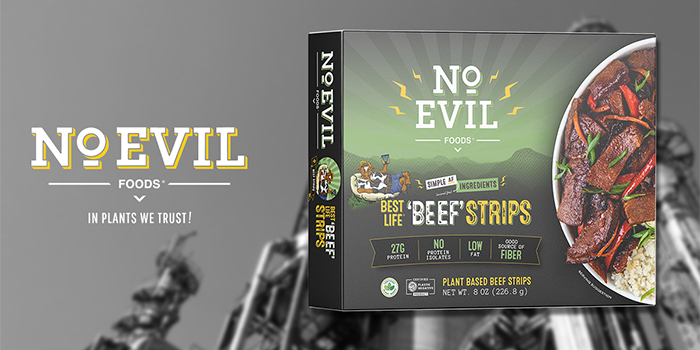
In November, entrepreneurial plant-based meat brand No Evil Foods announced that it was rebuilding once again. The company, which has suffered financing issues and manufacturing challenges since 2020, said it was renewing its focus on future growth in February by updating its packaging and launching a new alt-beef product with Sprouts. In April it was announced that co-founder and former chief creative officer Sahrah Schadel would transition to CEO. Around that time, the company was forced to halt production and lay dormant for nearly six months before getting back up and running with a new partner in the fall and re-strategizing growth, this time with a region-focused distribution plan.

Also in November, the U.S. Food and Drug Administration (FDA) gave the okay to cultivated meat, allowing Upside Foods’ cultivated chicken product to proceed on its route to market. Upside received a “No Questions” letter from the agency allowing it to move to the next stage of regulatory approval, by the U.S. Department of Agriculture, before rolling out for commercial use. The news came after the company raised $400 million to build its commercial production facility, expand the team and build out its supply chain.

Adding further misery to its already troubled year, Impossible Foods’ infringement suit against Boston-based Motif Foodworks led the latter company to challenge four more of Impossible’s patents in December. The tension between the two companies stems from a March lawsuit that claimed Motif’s alt-meat burger was infringing on Impossible’s IP due to its use of a heme ingredient to replicate the taste, texture and aroma of animal meat. Motif immediately challenged the claim, filing a petition for the U.S. Patent and Trademark office to review Impossible’s patent; however that request was denied in November. Motif responded to that decision by filing for the review of four more patents. The news came alongside a report that Impossible’s patent had been revoked in Europe due to a separate dispute.
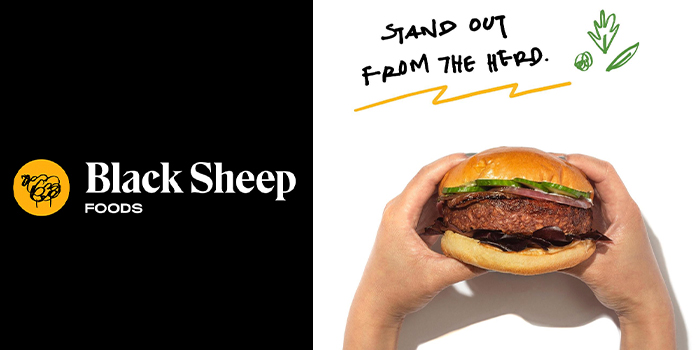
While Impossible and Motif dueled in court, alt-lamb producer Black Sheep Food announced the close of an over $12 million funding round in December to launch its plant-based products in food service. The company also has plans to launch vegan duck and boar products as well. The news came nearly a year after the company raised over $5 million to begin testing the product in a Bay Area restaurant chain.


